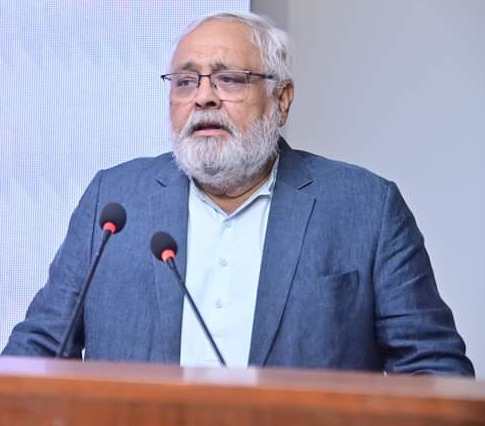The Pakistan Engineering Council (PEC) has formed 14 groups, each with a specific mandate outlined in official notifications. Among these groups, the Engineering Accreditation Board (EAB), led by Dr. Aneel Kumar, has drawn significant attention across Pakistan. These groups, often referred to as ‘committees,’ are traditionally seen as a political tool to keep engineers loyal to the ruling group.
The groups include one board, the Engineering Accreditation Board (EAB), which has 18 Governing Body (GB) members. There are also six committees: the Accreditation Moderation Committee (AMRC) with 6 GB members, the Accreditation Moderation Committee (AMRC) with 5 GB members, the Act & Byelaws Committee (ABC) with 5 GB members, the Engineering Professional Development Committee (EPDC) with 13 GB members, the IPEA Monitoring Committee (IPEA-MC) with 7 members, and the Qualification Equivalence Committee (QEC) with 5 members. Additionally, there are 7 working groups: the Working Group on Construction Industry Development (WG-CID) with 5 members, the Working Group on Industry Academia Linkages Development (WG-IALD) with 7 members, the Working Group on PEC Assets Development & Management (WG-PECAIDM) with 5 members, the Working Group on PEC Institutional Reforms (WG-PECIR) with 6 members, the Working Group on Public Sector Institutions Issues (WG-PSII) with 6 members, the Working Group on Technical Codes & Standards (WG-TC&S) with 4 members, and the Working Group on Young Engineers Affairs (WG-YEA) with 6 members.
A Quick Analysis
Interestingly, all 14 groups are formed from the pool of the Governing Body, which has 40 members directly elected through elections and 20 nominated members across the country. Most nominations are politically motivated. For the first time in a decade, no engineer from outside the GB has been included in any group or committee.
Dr. Sarosh Lodhi, the Senior Vice Chairman of the council, and Engr. Mukhtiar Shaikh have appeared in only one group each: the Working Group on Technical Codes & Standards (WG-TC&S) and the Working Group on PEC Assets Development & Management (WG-PECAIDM), respectively. Both Lodhi and Shaikh, political rivals, find themselves on the same side. It is possible they themselves selected only one group to work with, or they may have been sidelined by the creators of the groups.
Why the EAB Attracts Attention
The EAB always attracts attention because it is led by influential engineers who control significant leverage. The board is responsible for planning, managing, implementing, and monitoring the accreditation process across the country. Its convener particularly has influence over universities and, in some cases, uses this power in various ways. PEC has many unfortunate stories related to the board’s activities, most of which are buried in dusty files.
The unfortunate reality of the leadership in influential boards is that, during their tenures, the engineering profession in Pakistan has lost much of its appeal. Many universities have struggled to fill seats in various engineering disciplines.
This time, however, a relatively young and lesser-known engineer, Dr. Aneel Kumar, Pro Vice Chancellor of Mehran University of Engineering and Technology (MUET), Jamshoro, has been appointed to lead the board. Many in the engineering community claim Dr. Sarosh Lodhi, the Senior Vice Chairman, wanted to lead the board, but his wish was unfulfilled. His supporters argue that he was the most senior and deserving candidate. However, Chairman Engr. Waseem Nazir had a different perspective, believing that seniority alone is not enough, and other factors are important.
An engineer familiar with the council’s affairs suggests that Dr. Aneel Kumar’s personal and family background played a crucial role in his selection. The decision-makers felt confident that he would not succumb to pressure or compromise during a time when universities and the engineering sector in Pakistan are in dire straits.
The New EAB and Its Design
Setting politics and principles aside, the board’s structure, which includes a new committee, is both interesting and a source of concern for many engineers. According to the mandate outlined in the notification, the board will:
Formulate and review accreditation policies, procedures, standards, and criteria for undergraduate and postgraduate engineering programs.
Implement and monitor accreditation policies and standards in line with the Regulations for Engineering Education in Pakistan and the Accreditation Manual (2019).
Evaluate engineering programs and oversee decision-making, the operations of APMC, AMRC, and VCC, and the rationalization of student intake based on demand and supply.
If the Accreditation Planning and Management Committee (APMC) is responsible for planning and scheduling all types of accreditation visits, forming accreditation teams, and ensuring the appropriate academia-industry ratio, it would be crucial to have the approval of the board and its convener for all activities to be carried out by the committee. This consultation is necessary to ensure transparency and appropriate action in the activities that the AMRC is expected to oversee. In other case, the board will lose its significance and may fail to bring about the change.
Politics Supersede Principles
As in many spheres in Pakistan, engineers are not immune to political influence. Dr. Sarosh Lodhi’s grievances became public after his supporters advocated for his nomination to lead the EAB. They believe Lodhi, as the most senior member, deserved the position. However, on the issue of a recount of votes, which was demanded by Lodhi’s rival, Raghib Shah, Lodhi opposed it, even though the election committee had reached a consensus for the physical recount of the votes for the positions of chairman and senior vice chairman. The victories of Mohsin Khan and Madad Al Shah in the count have highlighted discrepancies in the vote-counting process.
Politics also appears in other corners of the PEC. Engr. Abdul Qadir Shah, an ally of Engr. Waseem Nazir and head of the National Engineering Association (NEA), has reportedly requested an office in the PEC headquarters in Islamabad. Insiders suggest that Shah and his supporters have asked the chairman to allocate an office to the former PEC leader, though the reasons remain unclear. n
Why Engineering Accreditation Board attracts extra attention PEC Boilers Begin Operations with Formation of Groups, Committees
on 06/12/2024







